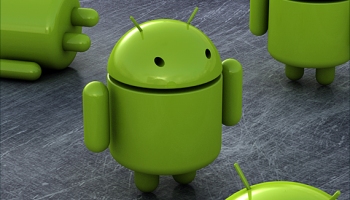

Google has issued a hard hitting response to the Microsoft/Samsung cross-licensing deal, accusing Redmond of extortion.
The Samsung deal with Microsoft means that the South Korean giant has agreed to pay Microsoft undisclosed fees for every Android smartphone and tablet it ships.
Samsung joined HTC as the second major Android OEM to settle with Microsoft to head off prolonged patent infringement litigation.
Brad Smith and Horacio Gutierrez, Microsoft’s general counsel and deputy general counsel, drove home this point in a blog post announcing the pact 28 September: “Today’s agreement with Samsung means that the top two Android handset manufacturers in the United States have now acquired licences to Microsoft’s patent portfolio.”
Indeed, Samsung and HTC accounted for over half of Android US smartphone sales. Naturally, the licensing deal is a huge coup for Microsoft, and a blow to Google, which didn’t veil its anger at the situation.
“This is the same tactic we’ve seen time and again from Microsoft. Failing to succeed in the smartphone market, they are resorting to legal measures to extort profit from others’ achievements and hinder the pace of innovation,” a Google spokesperson told eWEEK. “We remain focused on building new technology and supporting Android partners.”
The company has watched its open-source operating system grow from living on a single T-Mobile smartphone in 2008 to appear on smartphones, tablets, TVs and peripherals from dozens of hardware and software partners. Android is currently the leading smartphone platform worldwide.
Samsung is the largest Android OEM worldwide. The company last week revealed it sold more than 10 million Galaxy S II smartphones without major US penetration in less than six months. Samsung also sells the Galaxy Tab 10.1 and 8.9 tablets, several Android-based web devices and TVs fitted with the Android-based Google TV service.
Now, each time Samsung sells an Android device, some of that money goes to Google rival Microsoft, whose own Windows Phone 7 platform is woefully behind in the market.
However, it is important to remember that Android grew smartphone share from zero to 40 percent in three years, taking massive amounts of market share from both Nokia and RIM all over the world.
Moreover, Microsoft’s Smith and Gutierrez acknowledged that the company’s agreement with Samsung opens the door to the OEM possible building Windows Phone handsets: “The agreement also gives both companies greater patent coverage relating to each other’s technologies, and opens the door to a deeper partnership in the development of new phones for the Windows Phone platform.”
Motorola Mobility is the third and final major Android OEM with which Microsoft seeking a licensing agreement. Seeking patent protection of its own for Android and other businesses, Google is trying to acquire Motorola Mobility for $12.5 billion (£8bn).
That deal may well pass muster with the Justice Department’s antitrust division, which is reviewing the deal. But if Google were to buy Motorola it would assume the patent infringement missile Microsoft has lobbed at the phone maker.
And Microsoft’s lawyers are also positioning the signing of licensing agreements with the two Android OEMs as precedent that Google should pay be prepared to pay: “If industry leaders such as Samsung and HTC can enter into these agreements, doesn’t this provide a clear path forward?”
With Oracle already making a strong case in court to command licensing fees from Google over the use of Java in Android, Microsoft could then come from the other side and squeeze Google.
Notable development for Meta, after appeal against 2021 WhatsApp privacy fine is backed by advisor…
First sign of shakeup under new CEO Lip-Bu Tan? Three Intel board members confirm they…
Trump's nominee for SEC Chairman, Paul Atkins, has pledged a “rational, coherent, and principled approach”…
After being 'retired' by Intel's board of directors, ex-CEO Pat Gelsinger has joined a VC…
President touts easing Chinese tariffs to facilitate TikTok sale, and also implements 25 percent tariff…
Copyright lawsuit against OpenAI and Microsoft from The New York Times and other newspapers can…
View Comments
It's a shame the modern technological world is more concerned with legal battles than producing decent products. When was the last time Microsoft produced anything of note?
As Google matures into a big player I hope that it doesn't have to move to the MS and Apple model of having a legal team that numbers close to it's development team.
This is all about the decline of the desktop and the rise of the iPad and imitators.
Most people do not want or need desktop PCs, or even laptops. They want iPhones and iPads and the like. Sales figures trends are proving this now.
One other thought:
Since Samsung and the Korean gov are headed towards their own OS, this is probably just a licensing deal for a short time, and ONLY to hit Google before Samsung leave Android altogether.
So Oracle bought Sun and wants everyone to pay for Java. It's why they bought Sun.
Microsoft have a (perceived) lesser mobile device OS, so want to cash in on the work of someone else.
Apple are seeking vetoes for the use of devices which look a little like black-bordered rectangular LCD (or similar) screens.
It seems the big boys don't like competition!
As for Google.. I'm sure they're not whiter-then-white, but they grew from a 0% to a 40% share without resorting to extortion (their word, not mine), patent lawsuits, invoking penalty clauses, or similar tactics. sure, Nokia and RIM (and others) lost market share, but they lost it in a straight up knock down fight - comparisons were made, and they were found wanting. That is as it should be. Build a better mousetrap (or mobile OS) and the world beats a path to your door.